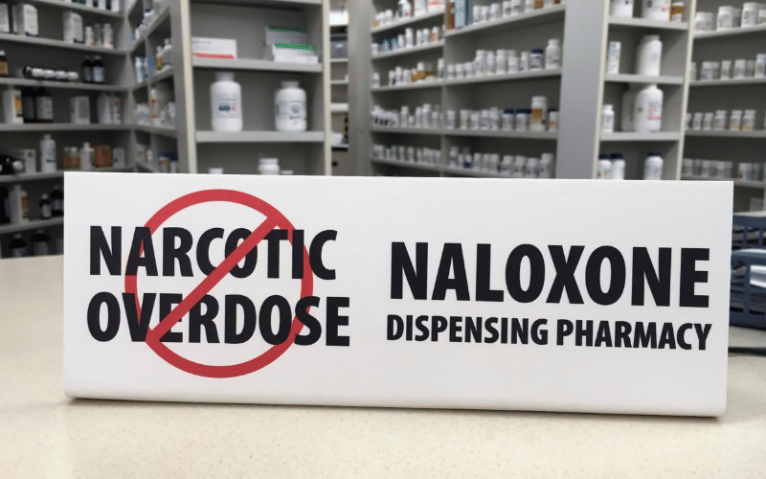With the widespread crisis of opioid addiction, the scary flood of overdose incidents, and the need for an instant response, Narcan is rising to the challenge. Some organizations are calling for people at risk of an overdose – or even family members or those who live in at-risk communities – should have access t Narcan over-the-counter. Is this a reasonable solution to the problem? Or will this just put a band-aid on the opioid crisis?
Selling Narcan over the counter is a bold move in what many are looking at as part of the war against drugs. Others see it as a cop-out for junkies – a get out of jail free card in the case of an overdose.
What is Naloxone?
Naloxone, the medication sold under the brand name Narcan can reverse the effects of opioids. The drug can reverse the effects of fentanyl, oxycodone, codeine, and heroin. Naloxone blocks the opioid signals to the brain by binding to our opioid receptors.
The effects of naloxone kick in within minutes of administering it. It can quickly restore normal breathing for a person who has respiratory depression or stopped breathing altogether due to an opioid overdose.
Can Everyone Have Access to Naloxone?
In short, no. State laws are different when it comes to accessing Narcan over-the-counter. Traditionally, naloxone is a prescription drug or can be dispensed by a pharmacist following protocols. In other words, it isn’t an OTC medication like cough syrup or vitamins.
Many pharmacies use protocols to dispense naloxone to those who are at risk and for family members or friends of those at risk of overdosing.
Usually, pharmacists conduct in-person training and written educational materials to the person getting the drug before dispensing the medicine. Training includes:
- Strategies to prevent overdose
- Information on risk factors
- How to notice signs of overdose
- How to respond to an overdose
- Procedures for administering naloxone
- Proper storage
Do Insurance Cover Naloxone?
So far, the law does not require insurance companies to cover naloxone. However, Medicaid, Medicare, and some private companies may cover the cost of naloxone. It’s essential to check with your insurance provider to know if your policy covers it.
Some people might be able to purchase Narcan at a discounted price, starting at $95. The average out-of-pocket cost of Narcan nasal spray is around $140. For the naloxone autoinjector that works similarly to an EpiPen, the out-of-pocket cost is close to $4,000. There’s another injectable solution, but it’s not available over-the-counter and can only be administered at hospitals.
Also, people might be able to access generic naloxone, which can cost between $20 and $40 per dose.
How to Store Narcan
If you do have a friend or family member at risk of overdose, make sure you follow the recommendations for storing naloxone. The autoinjector should be stored at room temperature and kept in the outer case provided by the pharmacy. The nasal spray, Narcan, should be stored at room temperature and away from light.
Avoid keeping it in the car during hot summer days or cold winter days. Additionally, it’s essential to check and keep an eye on the expiration date on the label.
Can Narcan Over-the-Counter Be Dangerous?
Overall, naloxone is considered safe. Not to mention a potential lifesaver when someone is overdosing. However, people might experience sudden withdrawal symptoms, especially among opioid-dependent individuals. People may experience sweating, increased heart rate and blood pressure, nausea, vomiting, diarrhea, fever, and irritability.
Getting Addiction Help
In the eyes of supporters, Narcan is preventative. It isn’t just for addicts – accidental overdose could happen to anyone who has prescription opiates on hand. However, naloxone is not the solution to an opioid problem.
If you or someone you love is struggling with drug abuse, seek help today. At Lighthouse Recovery Institute, our addiction treatment programs offer a comprehensive approach to addiction recovery. From detox, medication-assisted therapy, individual therapy, and group support meetings, we’ll be with you side-by-side on every step of your recovery.









